Combating Oppression with New Commemorations
Combating Oppression with New Commemorations examines the ways in which marginalized groups can confront oppressive regimes through commemorations and advocacy of their own heritage.
Presenting case studies from across the globe, the volume provides invaluable insights into the diverse strategies and various disciplinary approaches being used to counter oppression through commemorations of the heritage of marginalized groups. Reminding the reader that such commemorations are often created by individuals who have directly confronted traumas of oppression, contributors emphasize that their survivance, successes, and vitality are tributes to human resilience and creativity. Chapters also demonstrate how such commemorations can advance recognition of the group’s diverse legacies and cultural identity and help enhance social and economic equities for that population across local, regional, and national scales. It is also made clear that they can provide resources for reconciliation negotiations with other social collectives who seek to oppress the marginalized group. These dynamics can facilitate truth-telling, accountability, recovery of unrecorded histories, revitalization, increments of healing, and efforts to avoid future repetitions of past and present social traumas.
Combating Oppression with New Commemorations will be essential reading for academics, and students working in heritage studies, archaeology, anthropology, material culture studies, landscape analysis, and museum studies. It will also be of great interest to practitioners and activists around the world.
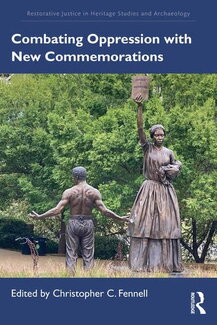
Islamicate Environments: Water, Land, Plants, and Society
Islam burst forth from Arabia in the seventh century and spread with astonishing speed and force into the Middle East, Asia and northern Africa and the Mediterranean. While its success as a dominant culture has often been attributed to military strength, astute political organization, and religious factors, this Element focuses on the environmental conditions from which early Islamic societies sprang. In the belt of arid land that stretches from Iran to the Maghreb (Spain and Morocco)-i.e. the territories of early Islam-the adaptation of natural water systems, landforms and plant varieties was required to make the land habitable and productive.
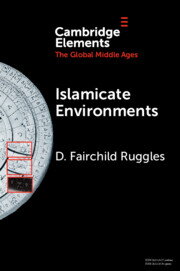
Grappling with Monuments of Oppression: Moving from Analysis to Activism
Grappling with Monuments of Oppression provides a timely analysis of the diverse approaches being used around the world to confront colonial and imperial monuments and to promote social equity.
Presenting 12 interdisciplinary, international case studies, this volume explores the ways in which the materiality of social domination can be combated. With contributions from activists, scholars, artists, and policymakers, the book envisions the theme of restorative justice in heritage and archaeology as encompassing initiatives for the reconciliation of past societal transgressions using processes that are multivocal, dialogic, historically informed, community-based, negotiated, and transformative. Arguing that monuments to historical figures who engaged in oppressive regimes provide rich opportunities for dialogue and negotiation, chapters within the book demonstrate that, by confronting these monuments, citizens can envision new ways to address the context and significance of the figures they memorialize and the many people who were targets of their oppression. Contributors to the book also provide a toolkit of methods and strategies for addressing the continuing structures of social domination.
Grappling with Monuments of Oppression will be essential reading for academics and students working in heritage studies, archaeology, anthropology, material culture studies, landscape analysis, and museum studies. It will also be of great interest to practitioners and activists around the world.
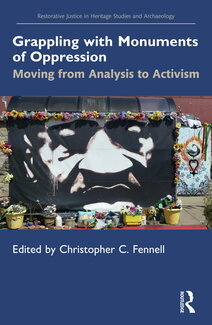
Crisis by Design: Emergency Powers and Colonial Legality in Puerto Rico
Devastating hurricanes, deteriorating infrastructure, massive public debt, and a global pandemic make up the continuous crises that plague Puerto Rico. In the last several years, this disastrous escalation has placed the archipelago more centrally on the radar of residents and politicians in the United States, as the US Congress established an oversight board with emergency powers to ensure Puerto Rico's economic survival—and its ability to repay its debt. These events should not be understood as a random string of compounding misfortune. Rather, as demonstrated by Jose Atiles in Crisis by Design, they result from the social, legal, and political structure of colonialism. Moreover, Atiles shows how administrations, through emergency powers and laws paired with the dynamics of wealth extraction, have served to sustain and exacerbate crises. He explores the role of the local government, corporations, and grassroots mobilizations. More broadly, the Puerto Rican case provides insight into the role of law and emergency powers in other global south, Caribbean, and racialized and colonized countries. In these settings, Atiles contends, colonialism is the ongoing catastrophe.

Remembering 1989: Future Archives of Public Protest
This account of the “laboratory of radical democracy” in the months before East Germany’s absorption in the West challenges memories of Germany’s reunification.
For many, 1989 is an iconic date, one we associate with the fall of the Berlin Wall and the end of the Cold War. The year prompts some to rue the defeat of socialism in the East, while others celebrate a victory for democracy and capitalism in the reunified Germany. Remembering 1989 focuses on a largely forgotten interregnum: the months between the outbreak of protests in the German Democratic Republic in 1989 and its absorption by the West in 1990. Anke Pinkert, who herself participated in those protests, recalls these months as a volatile but joyous “laboratory of radical democracy,” and tells the story of how and why this “time out of joint” has been erased from Germany’s national memory.
Remembering 1989 argues that in order to truly understand Germany’s historic transformation, we must revisit protesters’ actions across a wide range of minor, vernacular, and often transient sources. Drawing on rich archives including videotapes of untelevised protests, illegally printed petitions by Church leaders, audio recordings of dissident meetings, and interview footage with military troops, Pinkert opens the discarded history of East European social uprisings to new interpretations and imagines alternatives to Germany’s neoliberal status quo. The result is a vivid, unexpected contribution to memory studies and European history.

After Palmares: Diaspora, Inheritance, and the Afterlives of Zumbi
In After Palmares, Marc A. Hertzman tells the rise, fall, and afterlives of Palmares, one of history’s largest and longest-lasting maroon societies. Forged during the seventeenth century by formerly enslaved Africans in what would become northeast Brazil, Palmares stood for a century, withstanding sustained attacks from two European powers. In 1695, colonial forces assassinated its most famous leader, Zumbi. Hertzman examines the remarkable ways that Palmares and its inhabitants lived on after Zumbi’s death, creating vivid portraits of those whose lives and voices scholars have often assumed are inaccessible. With an innovative approach to African languages, and paying close attention to place as well as African and diasporic spiritual beliefs, Hertzman reshapes our understanding of Palmares and Zumbi and advances a new framework for studying fugitive slave communities and marronage in the African diaspora.
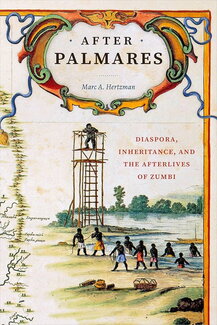
Left Turns in Brown Study
In Left Turns in Brown Study Sandra Ruiz offers a poetic-theoretical inquiry into the interlacing forms of study and mourning. Drawing on Black and Brown activism and theory, Ruiz interweaves poetry, memoir, lyrical essay, and vignettes to examine study as an emancipatory practice. Proposing “brown study” as key for understanding how Brownness harbors loss and suffering along with the possibility for more abundant ways of living, Ruiz invites readers to turn left into the sounds, phrases, and principles of anticolonial ways of reading, writing, citing, and listening. In doing so, Ruiz engages with a panoply of hauntings, ghosts, and spectral presences, from deceased teachers, illiterate ancestors, and those lost to unnatural disasters to all those victims of institutional and colonial violence. Study is shared movement and Brownness lives in citation. Conceptual, poetic, and unconventional, this book is crucial for all those who theorize minoritarian literary aesthetics and think through utopia, queer possibility, and the entwinement of forms.

Germany from the Outside: Rethinking German Cultural History in an Age of Displacement
The nation-state is a European invention of the 18th and 19th centuries. In the case of the German nation in particular, this invention was tied closely to the idea of a homogeneous German culture with a strong normative function. As a consequence, histories of German culture and literature often are told from the inside-as the unfolding of a canon of works representing certain core values, with which every person who considers him or herself “German” necessarily must identify. But what happens if we describe German culture and its history from the outside? And as something heterogeneous, shaped by multiple and diverse sources, many of which are not obviously connected to things traditionally considered “German”?
Emphasizing current issues of migration, displacement, systemic injustice, and belonging, Germany from the Outside explores new opportunities for understanding and shaping community at a time when many are questioning the ability of cultural practices to effect structural change. Located at the nexus of cultural, political, historiographical, and philosophical discourses, the essays in this volume inform discussions about next directions for German Studies and for the Humanities in a fraught era.
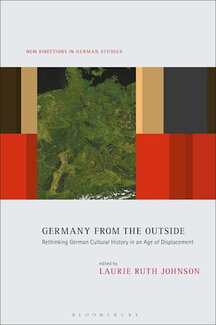
Arab Brazil: Fictions of Ternary Orientalism
Arab-Brazilian relations have been largely invisible to area studies and Comparative Literature scholarship. Arab Brazil is the first book of its kind to highlight the representation of Arab and Muslim immigrants in Brazilian literature and popular culture since the early twentieth century, revealing anxieties and contradictions in the country's ideologies of national identity.
Author Waïl S. Hassan analyzes these representations in a century of Brazilian novels, short stories, and telenovelas. He shows how the Arab East works paradoxically as a site of otherness (different language, culture, and religion) and solidarity (cultural, historical, demographic, and geopolitical ties). Hassan explores the differences between colonial Orientalism's binary structure of Self/Other, East/West, and colonizer/colonized, on the one hand; and on the other hand Brazilian Orientalism's tertiary structure, which defines the country's identity in relation to both North and East.
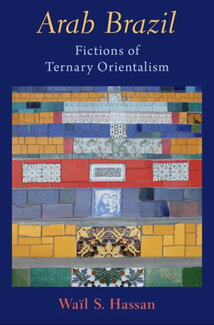
The Alleys: Just Dropped In To See What Condition My Condition Was In
The Alleys: Just Dropped In (to See What Condition my Condition Was In) is a series of letters written between the collaborative duo Sandra Ruiz & Hypatia Vourloumis, co-authors of Formless Formation: Vignettes for the End of This World. Turning to the epistolary as a practice and mechanism for uncovering how thought, experience, and knowledge processes are inherently dialogic, Ruiz & Vourloumis place pressure on the regulatory infrastructures and conditions of individuation and exchange. Decentralizing and redistributing sites of sharing and connection, the book asks the reader/listener to travel down the narrowest of gatherings and passages known as the alleys—hidden planetary meeting spots and counter paths for correspondence and movement, both ephemeral and material, marginal and vital, everywhere and nowhere.
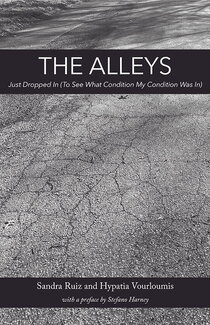
100 English Building
608 South Wright Street
Urbana, Illinois 61801